
 |
 |
|
| About Us | Essential Library | Read Past Issues | Resources | Composer Links |
|
To Lincoln Center
|
|
Caught
in the Act
Bright Sheng, Guo Wenjing: One From Column A One From Column B Bright
Sheng and Guo Wenjing have a
The Silver River is based on an ancient Chinese myth of a goddess weaver who becomes so enchanted by a mortal—a cowherd—she neglects to weave the stars that form the “Silver River” (Milky Way) connecting the heavens and earth. In this production, the lovers are portrayed in duplicate. The Goddess-Weaver is played by an eloquent dancer, Wen-Shuan Yang, as well as by a similarly costumed pipa virtuoso, Hui Li. The cowherd is played by a splendid baritone, Joseph Kaiser, as well as by a nimble flutist, David Fedele, dressed alike in brown caps, suede vests and black jeans. The Jade Emperor (memorably portrayed by Yu-Cheng Ren, who “sings” in the sing-song speech of Chinese opera) disapproves of his daughter’s attachment to the mortal and sends the Golden Buffalo, a lesser goddess, portrayed with total “girl friend” attitude by Karen Kandel, an African-American actress, to bring her to her senses. Golden Buffalo becomes entranced by the mortal world herself, winds up lingering too long with the cowherd and is ultimately deafened by the Emperor for being less helpful than she was supposed to be. What
makes The Silver River so different
Despite its hip pop-cultural references—neon lighting and concubines riding go-carts decorated with Panda bears and “anime” characters—The Night Banquet is much more conventional in style and pacing. The characters look like opera singers trying to move naturally and act which, as regular opera-goers know, is often like watching a water bufflo rollar skate . Like The Silver River, The Night Banquet is inspired by Chinese legend—in this case, a story told in a venerated 10th-century inked-and-painted scroll that depicts a historical figure, Han Xizai, a poet, artist and respected statesman. When Li Yu, the third and last emperor of the Southern Tang dynasty, came to the throne in 947, he wanted to appoint Han his prime minister. Unable to criticize the emperor openly or to refuse a position if offered one, Han instead chooses to demonstrate that he is morally unfit to serve by holding wild, orgiastic revels night after night.
Classical Grammy Winners
|

Sonates pour violin et piano Composer: Gabriel Faure Performer: Isabelle Faust, Florent Boffard Harmonia Mundi Franc - #901741 Isabelle Faust demonstrates that the sky-high standards she set with her award-winning Bartok recordings were no fluke. An intelligent, mature musician at the peak of her powers, Faust makes even Faure's most romantic lollipops sound important. |

Chrysalid Requiem Composer: Toby Twining Performer: Michael Steinberger, Toby Twining, et al. Cantaloupe - #21007 Few recent CDs have irritated me more. Too long-winded by half, too self-important by three quarters and yet there are moments of real inventiveness. Whatever happened to less is more? |
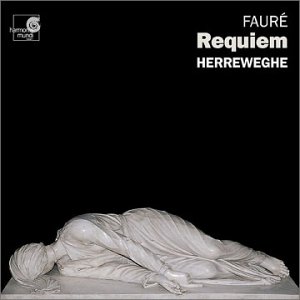
Faure: Requiem Franck: Symphony in D Minor Composers: Gabriel Faure, Cesar Franck Conductor: Philippe Herreweghe Performer: Johannette Zomer, Stephan Genz Ensemble: Collegium Vocale, Orchestre des Champs Elysees Harmonia Mundi Franc - #901771 Note to Toby Twining: This is what a masterpiece Requiem sounds like. You can't own too many copies of Faure's Requiem but if you have only one, this one will do. |

...and the lotos rose quietly, quietly Composer: Klaus Ib Jørgensen Da Capo [Naxos] - #8224201 We are not without sympathy for those misguided individuals who believe the accordian is a musical instument and to demonstrate how large-minded we are in this regard, we recommend these most inventive works for accordion – from solo and duo through chamber music to concerto – by the young Danish composer Klaus Ib Jørgensen. The music is highly complex and if you try you can even forget that the noise you're hearing is coming from an instrument that launched the career of Lawrence Welk. |
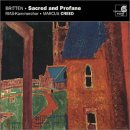
Sacred & Profane Composer: Britten, Elgar, Vaughn Williams, Delius, Stanford Performers: Rias Kammerchor, dir. Marcus Creed Harmonia Mundi Franc - #901734 From Elgar’s Part Songs (1904) to one of Britten’s very last works, Sacred and Profane (1975), these are some of the most beautiful and best-loved pieces in the English a capella repertory, many of them rarely recorded. Berlin's RIAS-Kammerchor has not only played a decisive part in the revival of the musical life of Berlin but has established itself as the best a capella group currently performing. Highly recommended. |
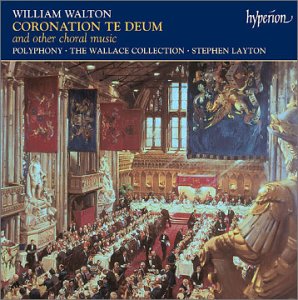
Coronation Te Deum Composer: William Walton Performer: Layton, Polyphony, Wallace Collection Hyperion - #67330 Hyperion has gone riffling through some dusty corners of Sir William's music drawers to come up with a treasury of goodies--large and small-- from the ‘pomp and circumstance’ of Queen Elizabeth's coronation march to simple Christmas carols, all sung majestically by Polyphony conducted by Stephen Layton with the resplendent brass of THe Wallace Collection.
|
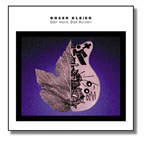
Deep Night, Deep Autumn Composer/Performer: Roger Kleier Starkland 211 Roger Kleier, an experimental guitarist, seduces listeners by mutating his guitar in various ways, ranging from the hallowed techniques of Jimi Hendrix and Captain Beefheart, through the extended techniques of avant-garde guitar-mangling, to the recent technological innovations of sampling, layering, and digital sound processing. All of which can be pretty unpleasant unless the performer has musical sensitivity that goes beyond mere technique. Fortunately, Kleier maintains a clear connection to the "real" world and the music on this brooding, elegiac CD is grounded in associations that speak eloquently to us all. |
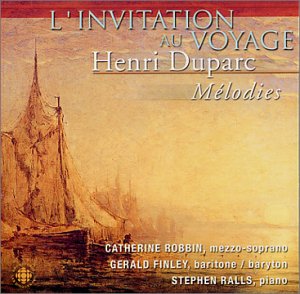
L’Invitation au Voyage Composer: Henri DuParc MVCD 1148 CBC Henri Duparc was something of a nut case who destroyed virtually everything he wrote, except for this remarkable collection of sixteen songs, and a few orchestral works and piano pieces. The songs are as good as anything by Berlioz or Debussy or anyone else in the history of French song. Mezzo soprano Catherine Robbin and baritone Gerald Finley, accompanied by Stephen Ralls, make a strong case for these overlooked masterpieces. |
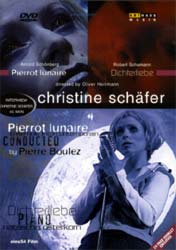
Pierrot lunaire • Dichterliebe Composers: Arnold Schoenberg, Robert Schumann Performers: Christine Schäfer • Natascha Osterkorn • Ensemble Intercontemporain • Pierre Boulez ARTHAUS MUSIK Two films by Oliver Herrman on DVD of musical masterpieces by Schoenberg and Schumann. Schumann's song cycle Dichterliebe is performed in an intimate setting, placed in a low-lit night club in the center of Berlin, much as it might have been done in the composer's day. In Pierrot Lunaire, Herrmann has created onscreen a surreal and grotesque modern-day metropolis through which Pierrot (Christine Schafer) wanders like a ghost, adrift in time and space.
|
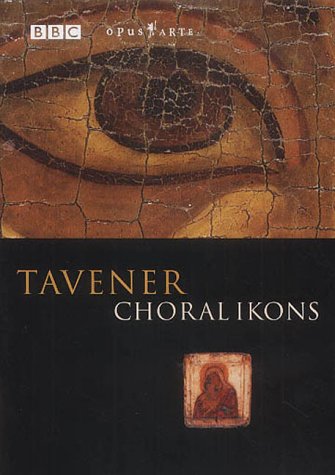
Choral Ikons Composer: John Tavener Conductor: Zdenek Kosler Performer: The Choir BBC - Opus Arte The Choir sings Sir John Tavener's hauntingly beautiful unaccompanied choral music in what is said to be a virtual reality restoration of the ancient Hagia Sophia church in Constantinople. Unfortunately, the visual effects are not only unnecessary but somewhat amateurish and cheap looking, thus detracting a bit from the full richness of Tavener's mystic inspiration. This DVD also features Manifestations of God - Sir John Tavener on his choral music and other filler material. |
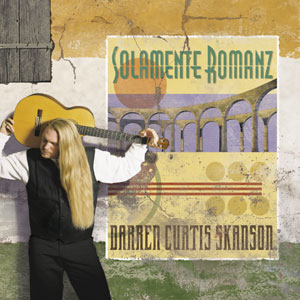
Solamente Romanz Composer/Performer: Darren Curtis Skanson CCM Light classical music for summer chilling, played expertly by Colorado resident Darren Curtis Skanson. Skanson's original pieces have genuine warmth and charm. |
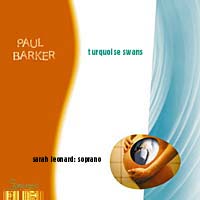
turquoise swans Composer: Paul Barker Performer: Sarah Leonard, soprano Sargasso A remarkable collection of piano and voice songs written by UK composer Paul Barker and sung by virtuoso soprano Sarah Leonard (Michael Nyman’s ‘Prospero’s Books’ and ‘The Cook, The Thief, His Wife and Her Lover’ soundtracks and numerous other 20th century operas). Some of the pieces were inspired by Silvia Plath’s writings, others by Aztec poetry--all are finely crafted miniatures of emotional insight and a perfect vehicle for Leonard’s extraordinary vocal talent. Also included are three arias from one of Barker’s many chamber operas--Dirty Tricks--about the famous British Airways/Virgin lawsuit. Leonard played an air hostess in that one. Don't know who played Richard Bransom. |
 |
Publisher: Duane Harper Grant (212) 582-4153 Editor: Jerry Bowles (212) 582-3791 Contributing Editor: Deborah Kravetz (C) Sequenza/21 LLC 2000 |
 |
Search WWW Search www.sequenza21.com |